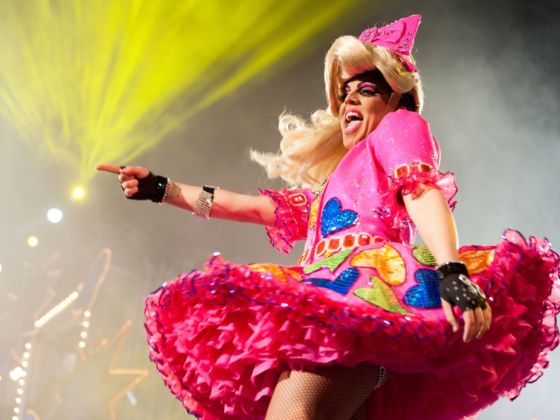She asked the audience to choose between Whitney Houston and Mariah Carey, tossing high-pitched giggles at the half-full bar before the stage as she flipped her hair.
“I can do anything, baby,” she squealed, kissing at a solo foreigner slumped behind a table, an empty bucket of San Miguel bottles in front of him. He just grinned up at her, drunk.
